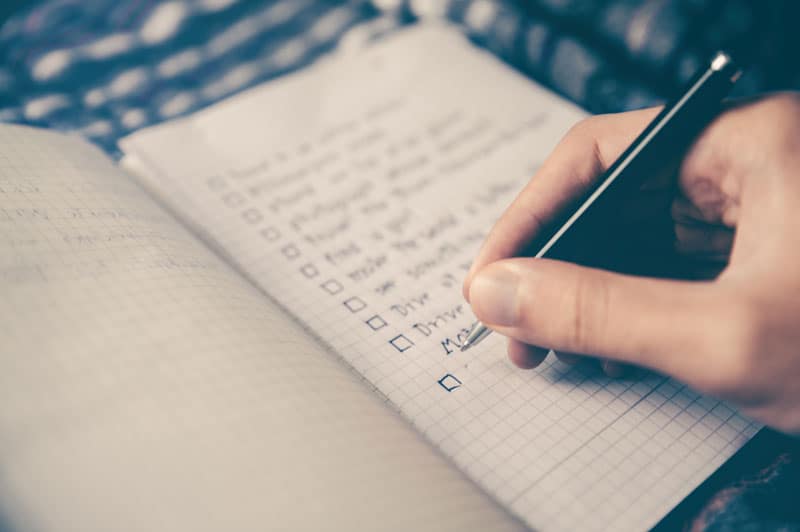Travelling to a new country can be a little bit overwhelming, so we’ve put together a checklist of essentials for your trip to New Zealand. Whether you’re here for a short stay or planning on a working holiday, you’ll want to keep this checklist handy.
New Zealand Essentials
- Inland Revenue Department (IRD) Number
If you’re planning a New Zealand working holiday, you’ll need to organise an Inland Revenue Department (IRD) number as soon as possible. An IRD is a unique tax number that will help you pay the correct tax rate on any income you earn. Without one, you could end up paying up to 46.7% of your income – so it’s worth getting on top of quickly. Before applying for your IRD:
- Open a New Zealand bank account. You will need to do this when you get here as it is no longer possible to open an account before you arrive.
- You’ll need to have access to the following:
- A valid passport with an expiration that is more three months after you intend to leave New Zealand
- Your home tax file number
- An outline of your plans during your New Zealand stay
- Your Immigration New Zealand Application Number
- Access to the Internet
How to apply for your IRD: Once you’re ready, you can apply for your IRD number online here. https://myir.ird.govt.nz/eservices/home/_/
- Pick up a SIM Card and phone
If you’re staying in New Zealand for more than a week, it’s a good idea to pick up a local SIM Card – especially if you’re on a self-driving holiday. Not only is it cheaper than roaming, but you’ll be glad to have easy access to Google Maps in case you get lost and help is just a phone call away in an emergency. The three main communication providers are:
- Vodafone
- Spark
- Skinny
- 2degrees
If you’re planning on going off the beaten track, we suggest grabbing a Spark SIM Card as they tend to have greater coverage in remote areas (but there are still areas without reception). Make sure your own phone is unlocked so that you can use the New Zealand SIM Card, or you might end up buying a new one.
- Internet
Free WiFi can be found in some city centres and cafes, but it isn’t guaranteed. Auckland, Rotorua, Wellington and Dunedin offer free WiFI, but we strongly suggest making sure your phone plan includes data so that you can stay connected. If you do get stuck, remember that all of our public libraries offer free WiFi service.
- Emergency calls
In an emergency, dial 111. This number will connect you with Police, Ambulance and the Fire Brigade, but we hope you won’t need it.
- Electrical Adaptors
Unless you’re going off the grid, you’ll need to make sure you pack your electrical adaptor to use your phone charger, hair dryer, or any other appliance you’ve brought over. We use the same outlets as Australia and other parts of Asia, with a two or three pronged, angled plug. New Zealand’s electricity supply is 230/240 volts, so make sure your appliances comply.
- Hungry?
New Zealand has some of the freshest produce on the planet, and some incredible dining experiences to boot. But if you’re looking to keep costs down while you travel and save up for a few special meals out, cooking your own food the majority of the time is the right way to go.
Supermarkets
Supermarkets are your go-to for weekly groceries, with everything from fresh produce, meat and dairy, to personal care and everything between. There are five main supermarkets to choose from:
- Countdown (aka Woolworths or Safeway in other countries)
- New World – Ask for a tourist card before you shop to take advantage of their discounts
- Pak’nSAVE
- Considered to be New Zealand’s cheapest supermarket with the lowest food prices, Pak’nSAVE have a no-frills approach to everything, including their store fit-outs.
- You can also buy in bulk, which saves you money in the long run.
- Fresh Choice
- Four Square
Most supermarkets have a loyalty program that accumulates points or offer discounts, so it’s worthwhile signing up if you plan on staying for a decent trip.
Convenience stores (aka the local ‘dairy’)
A little bit more expensive, convenience stores are just that: convenient. Grab an ice cream or a forgotten ingredient in a pinch, or a number of other various items that sometimes include postal services, phone top-ups or even the lottery. The most common convenience stores are:
- Four Square
- Night n’ Day
Farmer’s Markets
If you come across a local Farmer’s Market in a town on the weekend, you’re in for a treat. Here you’ll find super fresh produce and maybe even significant savings as you’re cutting out the middleman, buying straight from the farmer. There are usually lots of samples to try, friendly locals, to meet, and maybe even a bit of entertainment. Even if you’re not there for the food, you’re sure to have a good time. Start planning your Kiwi holiday! Find the perfect camper for your travels here.

